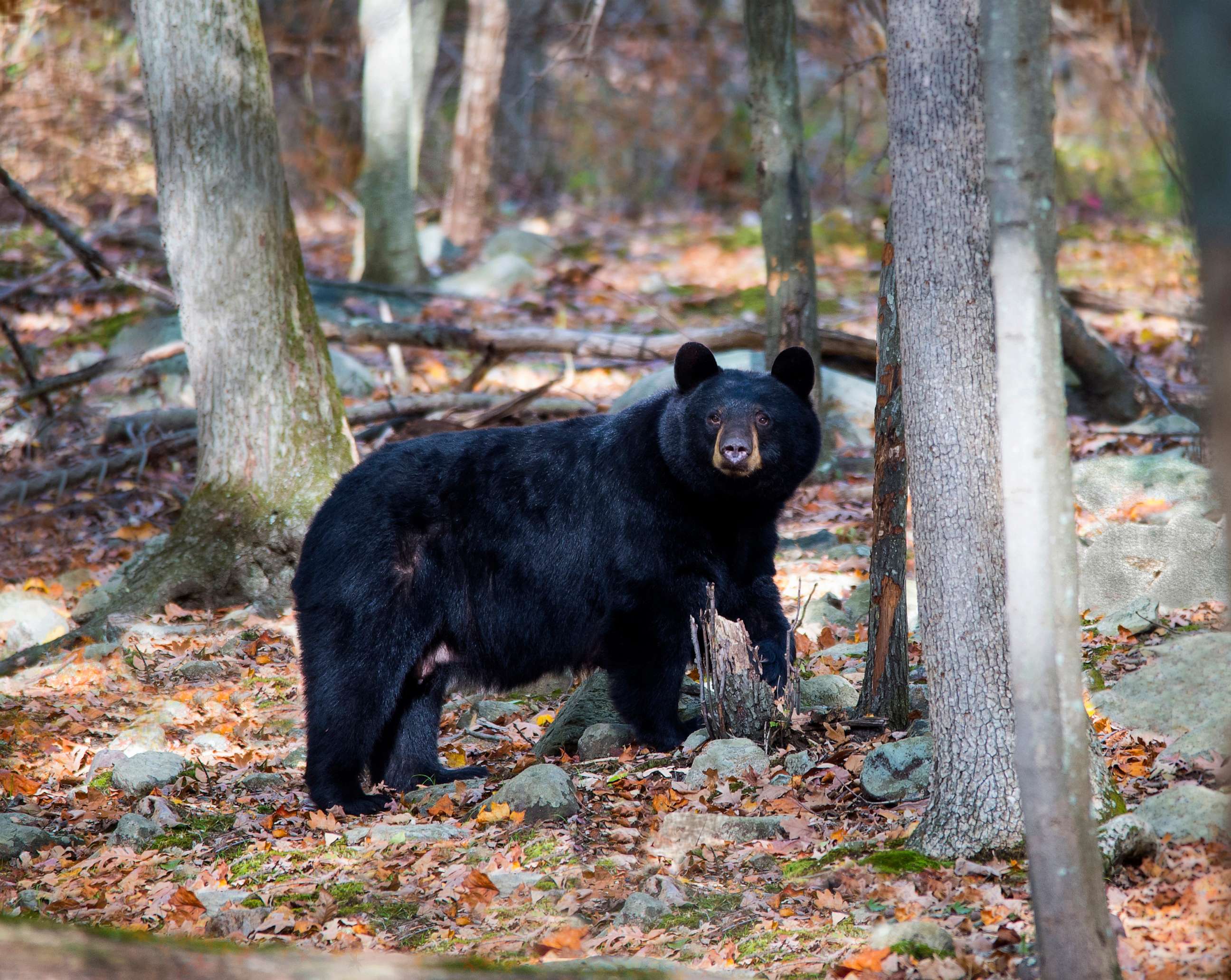New Jersey black bear hunt challenged by animal protection groups
A black bear hunt is scheduled to start next week.
A court has granted animal protection groups' request for an emergency court challenge to stop a black bear hunt from taking place next Monday in New Jersey. The state's Fish and Game Council authorized the hunt earlier this month.
The groups allege that the council bypassed required procedures for a hunt by misusing an emergency rule-making loophole. The court will allow plaintiffs to file an emergency motion by 4 p.m. on Dec. 2, three days before the hunt begins. Any opposition to the motion will have to be filed by Dec. 5 at 2 p.m.

The Fish and Game Council approved emergency regulations on Nov. 15 to "control the black bear population and reduce the threat of dangerous encounters between bears and humans through regulated hunting and non-lethal management measures," according to the council's website.
The council claimed the hunt was authorized due to increasing public safety concerns associated with the growing bear population. The hunting season is set to run from Dec. 5 to Dec. 10. Hunting is allowed a half hour before sunrise to a half hour after sunset.
Hunters will not be allowed to take or kill a black bear weighing less than 75 pounds or if the bear is in the presence of cubs, according to the council.
The hunt does not limit the total number of bears that can be killed, according to animal protection groups.
The council will hand out 11,000 black bear hunting permits. Each hunter can get up to two permits for different hunting zones but is only allowed to kill one bear during the whole season.
Animal protection groups say black bears are "extremely slow to reproduce" and dispute the council's assertion that the state's bear population will grow by 33% in two years.
Opponents also claim officials do not know the accurate number of bears in the state.
"Scientific studies show only a weak correlation between the population of bears and bear attacks. Bear-human interaction is more closely connected with specific human behaviors that drive encounters. Some states with large black bear populations have fewer conflicts than states with much smaller bear numbers," the Humane Society of the United States said in a statement.



